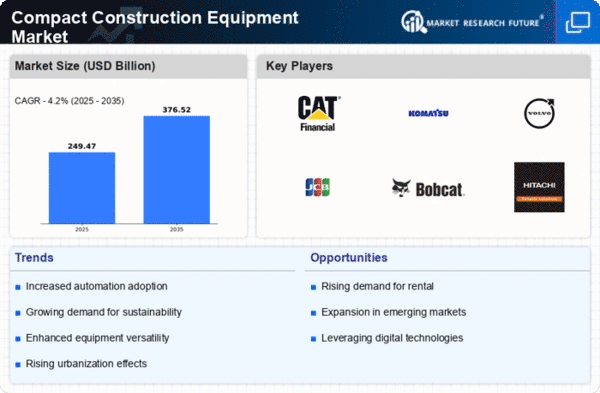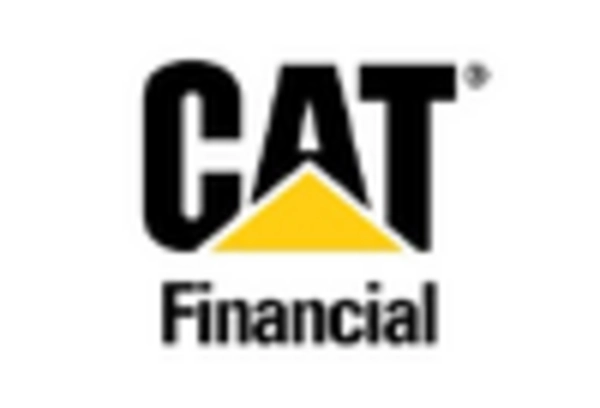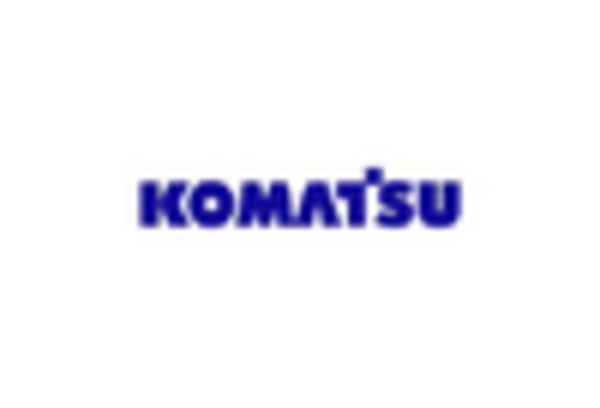Market Analysis
In-depth Analysis of Compact Construction Equipment Market Industry Landscape
The market dynamics of the compact construction equipment sector are influenced by a combination of factors, reflecting the industry's need for efficiency, versatility, and advanced technology. Compact Equipment Versatility: The dynamics are significantly shaped by the versatility of compact construction equipment. These machines, including compact loaders, excavators, and skid steers, are designed to perform a variety of tasks in confined spaces, making them essential in urban construction projects, landscaping, and infrastructure development. Urbanization and Space Constraints: The market dynamics are closely tied to global urbanization trends. With the increasing demand for infrastructure in urban areas, compact construction equipment becomes essential due to its ability to navigate tight spaces and operate efficiently in confined environments. Urbanization drives the need for compact machines in construction and development projects. Rising Demand for Rental Equipment: The dynamics of the market are influenced by the growing trend of renting compact construction equipment. Contractors and construction companies often prefer renting over purchasing due to cost-effectiveness and the ability to access the latest models. This trend shapes the market dynamics, fostering a robust rental market for compact equipment. Technological Advancements: Ongoing technological advancements in compact construction equipment play a crucial role in market dynamics. Innovations such as GPS tracking, telematics, and advanced control systems enhance the efficiency and productivity of compact machines. The integration of smart technologies contributes to improved performance and user experience. Environmental Considerations: Market dynamics are influenced by a growing emphasis on environmental sustainability in the construction industry. Compact construction equipment, often designed with fuel efficiency and reduced emissions in mind, aligns with the industry's goal to minimize environmental impact. The demand for environmentally friendly machines contributes to market evolution. Demand for Compact Electric Equipment: The market dynamics are shaped by the increasing demand for compact electric construction equipment. Electric-powered compact machines offer lower noise levels, reduced emissions, and enhanced energy efficiency. As environmental regulations tighten, the adoption of electric compact equipment is expected to grow, influencing market dynamics. Customization and Attachments: The dynamics of the market are impacted by the demand for customization and a variety of attachments. Compact construction equipment is often designed to accommodate different attachments, allowing users to perform a range of tasks with a single machine. The availability of diverse attachments contributes to the versatility of compact equipment. Government Infrastructure Investments: The market dynamics are closely linked to government infrastructure investments. Public infrastructure projects, funded by government initiatives, contribute to the demand for compact construction equipment. Increased spending on roads, bridges, and other public works projects influences the market dynamics, especially in regions with substantial infrastructure development plans. Compact Equipment for Small Businesses: The dynamics are shaped by the adoption of compact construction equipment by small businesses and contractors. Compact machines offer a cost-effective solution for smaller projects, allowing businesses to enhance their capabilities without the need for large and expensive equipment. The affordability and versatility of compact equipment contribute to market dynamics. Global Construction Trends: Market dynamics are influenced by global construction trends and the preferences of construction professionals worldwide. The adoption of compact equipment varies based on regional construction practices, economic conditions, and industry demands. Manufacturers need to adapt their offerings to align with diverse global construction trends.


















Leave a Comment